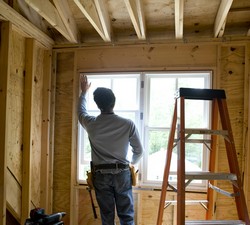Innovative wood panels to boost EU competitiveness in a global market
There is a growing need for lightweight materials in the wood products industry due to the scarcity of primary raw materials derived from forest trees. Although they weigh far less, recent technological advances are making lightweight materials as durable and resistant as solid wood. The EU-funded I-PAN(opens in new window) (Innovative poplar low density structural panel) project set out to develop novel, environment-friendly and lightweight panels through innovations in oriented strand board (OSB) manufacturing. Project partners developed a novel manufacturing method. They introduced innovations to existing resins aimed at needing less energy during the drying and pressing process, minimising volatile organic compound emissions and reducing overall production costs. Specifically, the I-PAN team carried out several activities to develop and demonstrate environmental benefits. To reduce pressure on forests, it optimised the use of selected poplar plantations to allow for a multi-year growth cycle and encouraged their cultivation in an effort to contribute to carbon dioxide emission reduction. Following laboratory tests, the OSB manufacturing process was improved by using poplar trees sustainably and incorporating about 30 % recycled wood. Waste and consumption across the entire manufacturing process was reduced, from raw material use to wood treatment to the final product. Decreasing the number of felled trees also reduces carbon footprint. Researchers developed a new formaldehyde-based resin that is appropriate for bonding recycled wood. This helps to reduce the quantity and presence of hazardous and volatile chemicals. In addition, they produced a new type of glue for manufacturing purposes to decrease the use of toxic or harmful solvents and contaminants, and a board that serves as a capable economic and environmental alternative to plywood panels. I-PAN innovations will result in reductions in waste, carbon dioxide emissions and raw material use. The production process will require less energy and produce fewer hazardous volatile chemicals, significantly lowering the costs per unit, as well as environmental impacts.







